by Cabell Smith
I spent my entire working life in an alternate universe. I was terrified every day that someone would find out that I would have paid them for the fun I was having! As a big fat plus, I was there when a paradigm shifted. To be present at change for the better is a very powerful tonic! Weird prelude: as a nine year old, my best friend Susan’s father was an engineer (I clearly remember the pens and pocket protector) at the world-famous Bell Labs. Bell’s engineers invented the transistor, created the laser, the solar cell, and countless other transformative technologies and have won at least a dozen Nobel Prizes. One day in the late 1950s, her dad came home with a portable tape recorder, maybe an Ampex 600?
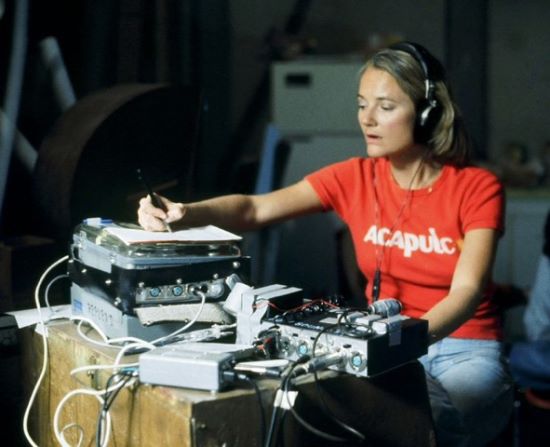
Susan and I took to this wonder, and immediately recorded our songs and little plays into this amazing device to the long-suffering delight of our parents. Who knew that sound recording would be my life and my delight? I came to the World of SOUND via the independent film community and the Women’s Movement, which were intertwined in New York City in the early 1970s. Women were beginning to produce and direct independent films, and many wanted to work with women technicians, of which, of course, there were none.
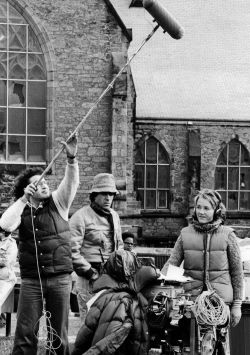
In 1970, I was invited to join a womens’ consciousness-raising group. We were seven; with a grant from the New York State Council on the Arts we purchased a Sony Portapak—a revolutionary new portable video camera and video tape recorder. We were going to tape our sessions; we were going to make our own TV! We wrangled through the technology, each of us mastering the camera, sound and editing for programs about women’s health issues, many of which were broadcast on Open Channel, New York’s new public access cable outlet.
In 1972, a cameraman friend’s regular sound tech was not available (always the point of entry, right?) and he asked me if I wanted to learn to do documentary sound. We took the Nagra III and a Sennheiser 805 and went into Central Park. I put on my first pair of Beyer DT 48s and bang! zoom! Truly the earth moved, and reoriented itself, around my head! What a rush of tone and volume and clarity and precision. And, by changing the position of the mike, I could control this new enormous universe. I was hooked.
I began trying to build a resume, and track down jobs that would be paying jobs. Up to now, I was working on friends’ films for free and occasionally working for WNET, the New York PBS station. I went through the Producers-Production Companies section of the New York Motion Picture TV Directory, calling every single company asking for a chance to work for them.
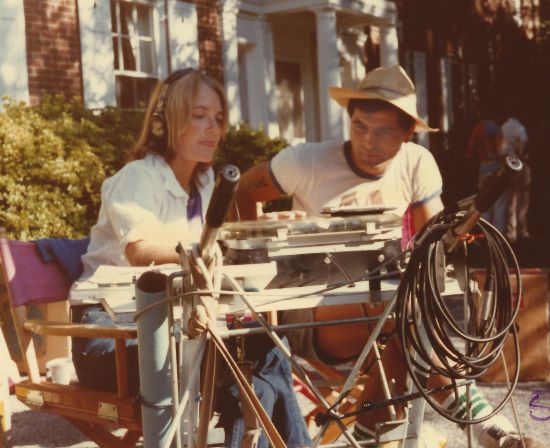
Usually the response was a flat “no.” However, in December of 1971, I got a call from a woman (!) at the Canadian Broadcast Corporation. The American Academy of Sciences was having a symposium in Philadelphia between Christmas and New Year’s, and the CBC needed someone to go and record the talks. I was thrilled to have my first paying job, which meant my first time in a hotel on my own, my introduction to the concept of per diem.
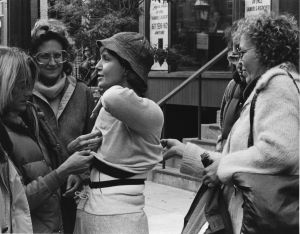
The travel arrangements were especially exciting: arrive at world-renowned cultural anthropologist Margaret Mead’s office in the Museum of Natural History and travel to Philadelphia with Ms. Mead in her limo! I spent a glorious week “tying in” to the soundboard with my rented Nagra III and listening to Margaret Mead, Louis Leakey and Carl Sagan talk about their latest research. It was a very cool beginning!
Around the same time, John Chester, Chief Sound Engineer for Bill Graham’s rock venue Fillmore East, gave a class on basic electronics for women. Ohm’s Law, capacitor, resistance, condenser microphones, proximity effect—now I could define and understand my new universe. Many of my male counterparts came to sound via the music world. They were knowledgeable about electronics and sound. John’s course was a godsend. I could now hold a conversation with another sound person, and understood more than “plug this into that.”
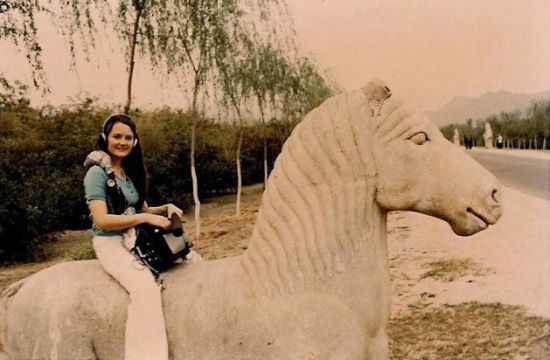
In March of 1973, NBC-TV News hired me as a Sound Technician. NBC, a closed IATSE Local 52 “shop,” was dodging a legal suit regarding hiring of women at the time. All men, solidly union, and I was neither. There was no other woman working in a union shop on a day-to-day basis. A news (film) crew consisted of three people: camera, sound & electric. We captured the story for our producer and the on-camera talent. Being on a news crew in New York City was hugely exciting. My crew was the first on the scene when Philippe Petit walked on a high wire between the towers of the World Trade Center. I was there when Secretariat won the Belmont Stakes to capture the Triple Crown, and hung a microphone on Mickey Mantle for the Old-Timers’ Game.
We went from opening the trunk of a Caddy in the depths of Brooklyn to discover a dead body, to a shootout at the Mosque in Harlem, to trying to set the microphone at the right height for a news conference with both NY mayoral candidates: John Lindsay, 6’ 4”, and Abe Beame, 5’ 2”. We usually covered two stories a day. After filming each story, a dashing Teamster on a motorcycle rushed our sound-striped film back to “30 Rock” for its developing bath—“into the soup”—for “film at eleven!” Between stories we usually had time for a lunch at one of New York’s best restaurants. If our morning story found us in Brooklyn, we headed for Lundy’s in Sheepshead Bay. We prayed to stay in Manhattan on Thursdays for the creamed spinach at the Brittany du Soir. Many of these restaurants, like the technology and leisurely pace of news gathering, have disappeared.
Most guys thought I something of an oddity—why would a woman WANT to do this job? But I don’t remember any nasty incidents. I don’t know what went on behind my back, but I have the feeling that because technical jobs are so easily evaluated by ones’ peers—either you’re doing the job or you’re not—there really wasn’t much of a fuss.
Within a year, NBC was hiring other women technicians, on staff and freelance. I think we were successful because we were not particularly didactic about politics. We were doing our jobs alongside the men. Just being there was political. And politics was all around us. By 1974, NBC and the other networks could wrangle an all-woman crew for countless stories about women in prison, women’s examinations, rape—stories that would have been unheard of, and thus unheard, a few years before.
After about a year on the job, one of my colleagues came up to me and said, “Hey, you know, my sister could do your job.” I remember just smiling … The light bulb had gone off! The opportunity to work and make a decent living doing something you love is truly transformative. I’m grateful it happened for me, and grateful that I was able to facilitate that experience for others.